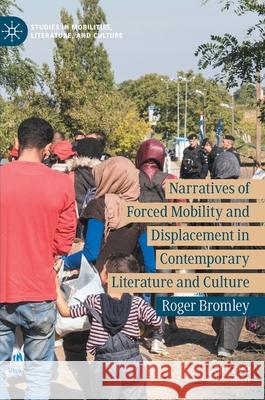Narratives of Forced Mobility and Displacement in Contemporary Literature and Culture » książka
topmenu
Narratives of Forced Mobility and Displacement in Contemporary Literature and Culture
ISBN-13: 9783030735951 / Angielski / Twarda / 2021 / 247 str.
Kategorie:
Kategorie BISAC:
Wydawca:
Palgrave MacMillan
Seria wydawnicza:
Język:
Angielski
ISBN-13:
9783030735951
Rok wydania:
2021
Wydanie:
2021
Numer serii:
000838903
Ilość stron:
247
Waga:
0.46 kg
Wymiary:
21.01 x 14.81 x 1.6
Oprawa:
Twarda
Wolumenów:
01
Dodatkowe informacje:
Wydanie ilustrowane











